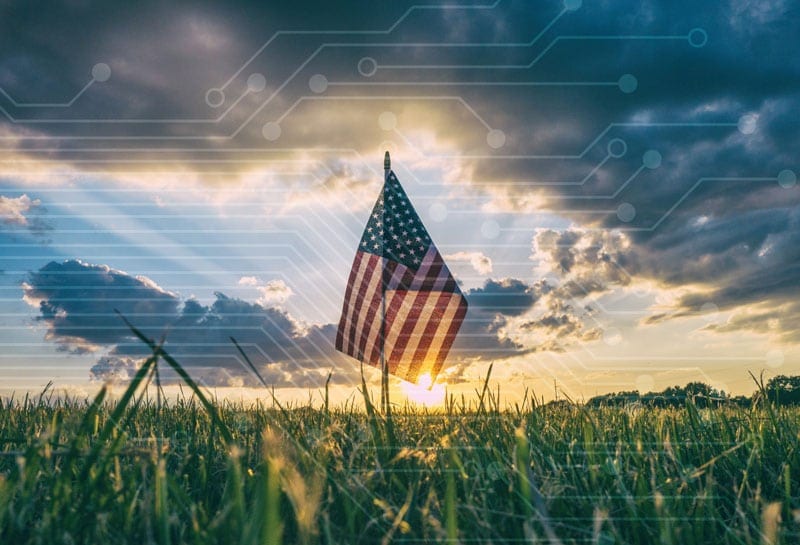Independence Day, more commonly referred to as the Fourth of July, is finally making its one-day guest appearance in 2018! Every year, people celebrate the United States’ separation from the British Empire in 1776 through picnics, concerts, parades, baseball games, and firework festivals! It is the holiday for a day of bad sun burns and the smell of barbeques! But, the one trait of this holiday that doesn’t change annually is its tie to freedom. And virtual freedom has become a worldwide discussion this year because of net neutrality.
Why do our (inter)NETS need to be NEUTRAL?
Net neutrality is what has ensured equal playing grounds for local businesses and larger corporations. It also prevents Internet providers from tampering with a content provider’s speed if they aren’t paying extra to get priority on their network. Small web innovators beware! You didn’t sign up to get treated as second or third-class web citizens. Hmmm, didn’t the United States break away from Britain because of taxation (without representation)? Sounds kind of similar, but don’t worry because it’s no longer the Parliament taking money; it’s big business.
Net Neutrality principle was a widespread topic in the early 2000s, but it re-entered the mainstream conversation in 2017 after it was voted on to be partially repealed. The World Wide Web was created in 1989 and net neutrality was first implemented in 2014. So why do we need this when the internet survived so many years without it? Well, those years were very, VERY different (and FREER) because the Internet was much simpler. Fast forward to now, our world and Internet has become more complex and sophisticated (and less free?).
This wasn’t part of the plan! Wait…What was the plan again?
Creator of the World Wide Web, Tim Berners-Lee, “aimed to create a neutral space where everyone could create, share, debate, innovate, learn and dream.” His ultimate goal was to create an online space to give people freedom to create a decentralized world of innovation, creativity, and support! So, how did the Internet deviate so far from this goal and become a puppet for corporate giants? Tim Berners-Lee gifted the World Wide Web to society, no cost. He created this entity and then let it go, having confidence that it would create a positive impact in world. Because the World Wide Web was unowned, no monopolistic fee was required for big business to access the it, so they seized their opportunity.
That’s not to say that nothing great came out of the Internet, because numerous innovations, ideas, and support systems were brought up after the introduction of the Internet. But you can’t take the good without the bad, and you need the bad things in order to make great things. All of this contributes to this cycle, which accounts for humans’ ignorance, knowledge, power, weakness, fear, and much more. The “end products” of this cycle may good, bad, or neutral in impact. It’s inevitable!
Revolution vs. Resolution: Is fighting back the answer?
Even though Tim Berners-Lee never profited from his invention, he has chosen to dedicate what he can to protecting it and pushing it toward his initial goal. AKA he’s going to give them the good ol’ razzle dazzle. The physical and mental guilt he feels as a result of the negative outcomes from his creation is what’s pushing him to find a solution. It’s safe to say that Tim Berners-Lee is not the type of guy to sit and watch the story unfold. Once this new program, Solid, is released by Berners-Lee and his crew, the Internet will once again be decentralized, and big business will no longer have its monopolies. But doesn’t that leave potential for morenegative outcomes? Of course. Any system that deals with and is created by humans isn’t perfect, because humans aren’t perfect!
By decentralizing the Internet and offering this new option to the public, it’s now time for people to choose what path they will go down.
What are YOU willing to give up for freedom?
When fighting for freedom in the Revolutionary War, colonists gave their lives for freedom. This situation does not call for that ultimate sacrifice but taking any sort of risk for freedom causes discomfort. The program Berners-Lee and his team are creating will remove Google, Facebook, Amazon, Apple, and Microsoft, the powerhouses of the Internet. The sacrifice people must make is either to abide by large corporations’ Terms & Agreements or lose the convenience while taking a stand against big business. Maybe it’s more fun to throw tea off a boat, but in 2018 freedom of privacy and from big business might mean another round of Independence Day festivity!



VIEW ALL